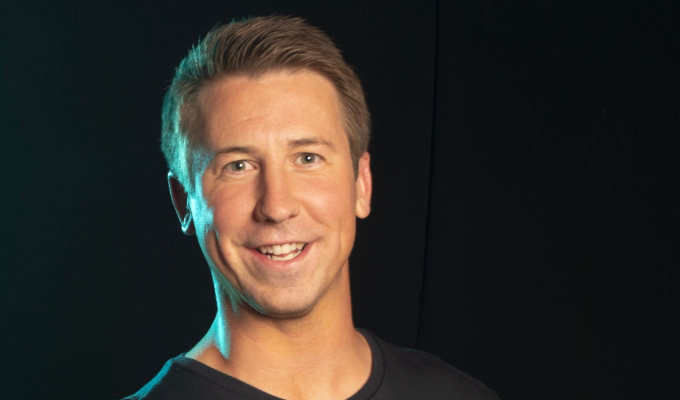
Meshida: My Japanese Perspective
Edinburgh Fringe comedy review
Given the extent to which Little Britain is now pilloried for its racially suspect sketches, it's ironic that Matt Lucas and David Walliams' show is the reason that Meshida became a comedian.
The Japanese stand-up was recommended the series by an English tutor, and Meshida delighted in its propensity for saying the unsayable, so different to the polite, disciplined, rules-based society at home.
With the benefit of hindsight, his lawyers are now in pursuit of that teacher for the association. But Meshida continues to be persecuted by the chalk-handed. After jacking in his corporate job to perform English-language comedy in Tokyo to expats, almost invariably English teachers, he grew accustomed to polite appreciation for his vocabulary rather than his jokes.
Happily, he's now continuing his education at the Edinburgh Fringe, where he's at least guaranteed an honest appraisal of his humour if not an escape from cultural stereotypes, he protests, from his karaoke room venue. All while sporting his print shirt of the famous The Great Wave off Kanagawa by Hokusai.
He opens a little tentatively by gently belittling the adjectives 'Great' and 'United' in Great Britain and the United Kingdom, before admitting that Japan has been purloining some GB branding. Branching out into a run-through of other nation's mottos, it's more interesting than funny. But he draws a line under it with amusing, resigned acceptance that when it comes to calling the shots in South East Asia, China is in charge.
He doesn't fear invasion from the censorious superpower particularly, because Japan's rules about comedy are already pretty intractable – no political jokes and nothing 'controversial', whatever that means, he doesn't really elaborate. Beyond adding, absolutely nothing about sex.
With a declining birth rate and rapidly ageing population, Japan can't afford to be so reserved about carnal matters and frankly, frigid. He mocks another country for statistically being the lustiest in the world, suggesting a correlation with their unemployment figures. But he appreciates that it's a Pyrrhic snark.
And it's surely another dubious international correspondence that it was an English comedian who introduced Meshida to tentacle porn. The scales fell hard from his eyes as he came to realise that not only is it one of his nation's weirdest exports, against some stiff competition, but Hokusai was producing it 200 years ago, along with progressive prints of lesbian lovemaking.
He is principally a cultural commentator, who patently sees his role, to a sizeable extent, as a guide for Western audiences to such things as the traditional Japanese religion of Shinto and the wonder of his nation's toilets. Yet he doesn't have the observational acuity of, say, his compatriot Takashi Wakasugi, to generate big laughs from the latter phenomenon. Wryly, he notes the comparative levels of technological achievement and hygiene standards globally but struggles to elicit deeper levels of meaning.
He could also afford to open up more about his own journey, as he currently offers mere glimpses of the burnout that led to him becoming a comic, the workaholic and alcoholic pressures of his office role that he wilted beneath. Shallow material about the on-the-nose, literal translation of his name is all very well but it doesn't truly reflect the man.
That's to be lamented, because Meshida is a genial, animated host in his glorified karaoke booth, even breaking into song at one point. And he offers a proud introduction to his homeland, albeit with crucial, knowing caveats.
Review date: 25 Aug 2024
Reviewed by: Jay Richardson
Reviewed at:
Laughing Horse @ City Cafe








